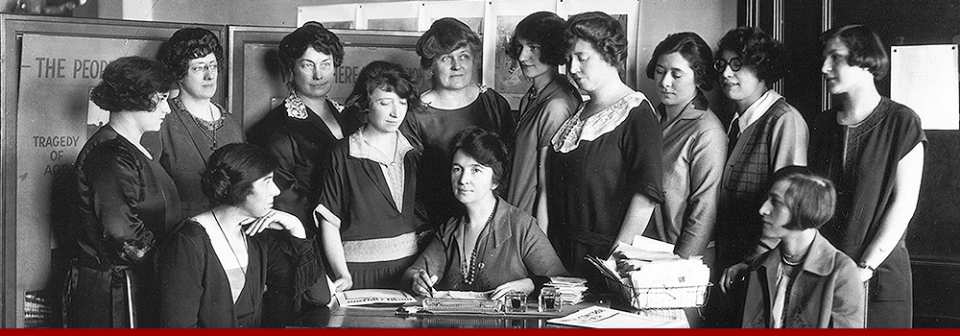Tags
We recently came across an article from the Washington Post, published on December 13, 1924 about a contest put on by the Pictorial Review, a popular women’s magazine, to honor the American woman “who made the most valuable contribution to the advancement of human welfare in 1923.”
The winner of the $5,000 award was Marian MacDowell, the pianist and founder of the MacDowell Colony, a refuge for artists which provided “ideal conditions for the creative artist,” at Peterboro, New Hampshire. (For more on any of these women, click on their names.)
Five other women, in addition to Margaret Sanger, were named as finalists who “were considered by the judges to have come within the scope of the award.”
They were: Grace Abbott, social worker and head of the U.S. Children’s Bureau; Florence Ellinwood Allen, the first woman to serve as a United States Supreme Court Judge; Martha Berry, educator and founder of Berry College; Annie Jump Cannon, an Astronomer influential in the development of stellar classification; and Cora Wilson Stewart, a Kentucky educator who founded a pioneering adult literacy program at the Moonlight School.
These women and those that won the award in the following years, offer a veritable “Who’s Who” of 20th century women leaders and activists. We traced the winners of the award, which was offered for the first time in 1923, through 1931.
Only in the first year did the Pictorial Review release the names of the runners-up, some of whom went on to win the prize. Cora Wilson Stewart won the award in 1925. In 1926 the award went to Sara Graham-Mulhall, a social worker and author of Opium, the Demon Flower won the award and promised to use the funds for the anti-narcotic movement. Eva LeGallienne , an actress and manager of the Civic Repertory Theatre, won the 1927 award. Martha Berry won in 1928. Florence Rena Sabin, the noted tuberculosis researcher was awarded the prize in 1928. Suffragist and peace activist Carrie Chapman Catt won for 1929. Jane Addams, the social worker and settlement house activist was named the winner for 1930. Helen Keller was “surprised and proud” to receive the final award offered, in 1931.
